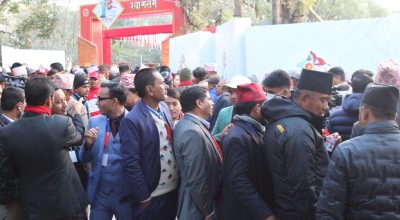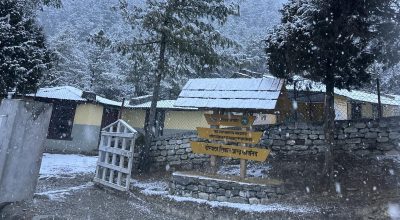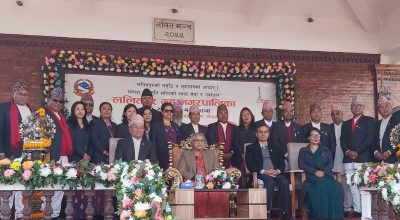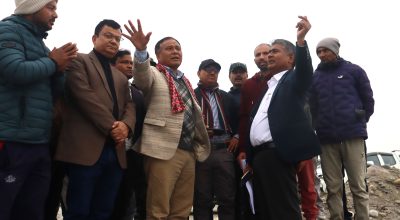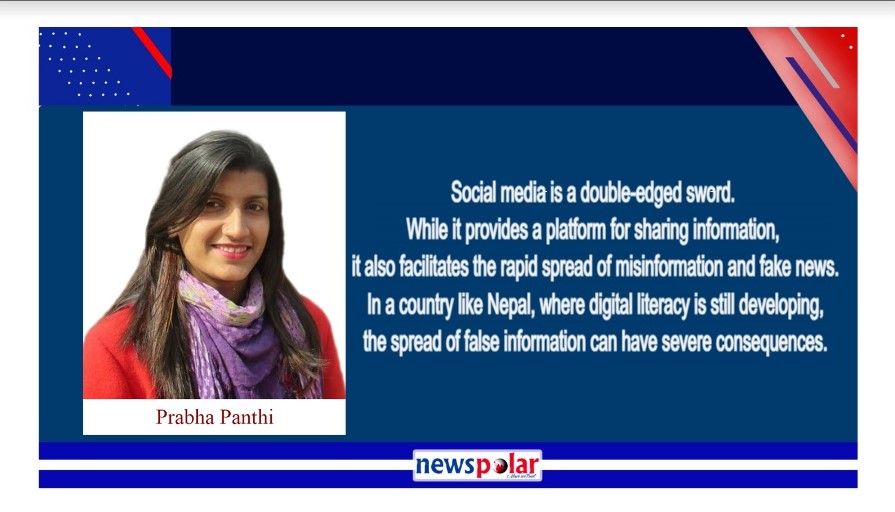
Prabha Panthi
Kathmandu, June 18: In recent years, the pervasive influence of social media has become a significant concern globally. Countries like the United States have started implementing measures to mitigate the negative impact of social media on students. For instance, the Los Angeles Unified School District is considering storing students’ phones in pouches or lockers during school hours to curb distractions and foster a more conducive learning environment. Similarly, Florida has enacted laws to restrict student access to social media. This growing awareness and action against the detrimental effects of social media are not just confined to the West but are also relevant to countries like Nepal, where the challenges posed by social media are equally pressing. Therefore, it is high time we consider stringent regulations or an outright ban on social media, especially for children and teenagers.
One of the primary reasons for regulating or banning social media is its role in distracting students. Numerous studies have shown that social media can significantly affect students’ academic performance. The constant notifications, messages, and the temptation to check social media platforms can disrupt students’ concentration and study routines. In Nepal, where the education system already faces various challenges, allowing unchecked access to social media can further deteriorate academic performance. Schools should be sanctuaries of learning, free from the distractions of social media. By implementing a ban or strict regulation, we can help students focus better on their studies, thus improving their academic outcomes.
Social media is a double-edged sword. While it provides a platform for sharing information, it also facilitates the rapid spread of misinformation and fake news. In a country like Nepal, where digital literacy is still developing, the spread of false information can have severe consequences. From health misinformation to politically charged fake news, the unchecked dissemination of false information can lead to public unrest and misinformation-induced behaviors. By regulating social media, we can implement stricter controls on the type of information that gets disseminated, ensuring that only verified and accurate information reaches the public.
The impact of social media on mental health is another critical issue that cannot be overlooked. Studies have linked excessive social media use to increased rates of anxiety, depression, and other mental health issues, especially among teenagers. The constant comparison with others, cyberbullying, and the pressure to maintain a certain online persona can take a toll on young minds. In Nepal, where mental health resources are scarce, preventive measures such as regulating or banning social media for students can significantly reduce these mental health risks. By doing so, we can create a healthier environment for our youth to grow and develop.
Social media often engages people in activities that are not productive. Scrolling through endless feeds, engaging in online debates, and spending hours on social media games can lead to significant productivity loss. For students and working adults alike, this means less time for productive activities such as studying, working, or engaging in physical activities. By regulating social media, we can encourage people to spend their time more constructively, thus enhancing overall productivity.
Privacy concerns are rampant on social media platforms. With the increasing incidents of data breaches and misuse of personal information, regulating social media becomes crucial to protect users’ privacy. In Nepal, where awareness about digital privacy is relatively low, users are more vulnerable to privacy violations. Stricter regulations can enforce better data protection practices, ensuring that users’ personal information is safeguarded against misuse.
The government and educational institutions have a crucial role to play in this regulation. The government can introduce legislation that limits social media use among students and implements strict guidelines on the type of content that can be shared. Educational institutions, on the other hand, can enforce these regulations within their premises and educate students about the responsible use of social media.
Instead of spending time on social media, students should be encouraged to engage in alternative activities that promote learning and personal development. Schools can introduce more extracurricular activities, such as sports, arts, and science clubs, to provide students with constructive ways to spend their time. Parents also have a role to play in encouraging their children to take up hobbies and activities that do not involve screens.
To conclude, the influence of social media on students and the broader population is a multifaceted issue that requires immediate attention. By banning or regulating social media, we can mitigate its negative effects, such as distractions, the spread of misinformation, mental health issues, productivity loss, and privacy concerns. It is time for Nepal to take proactive steps in safeguarding its young population from the adverse effects of social media. Through combined efforts of the government, educational institutions, and parents, we can create a healthier, more focused, and productive society. Let us act now to ensure a better future for our children and our nation. #nepal #socialmedia





